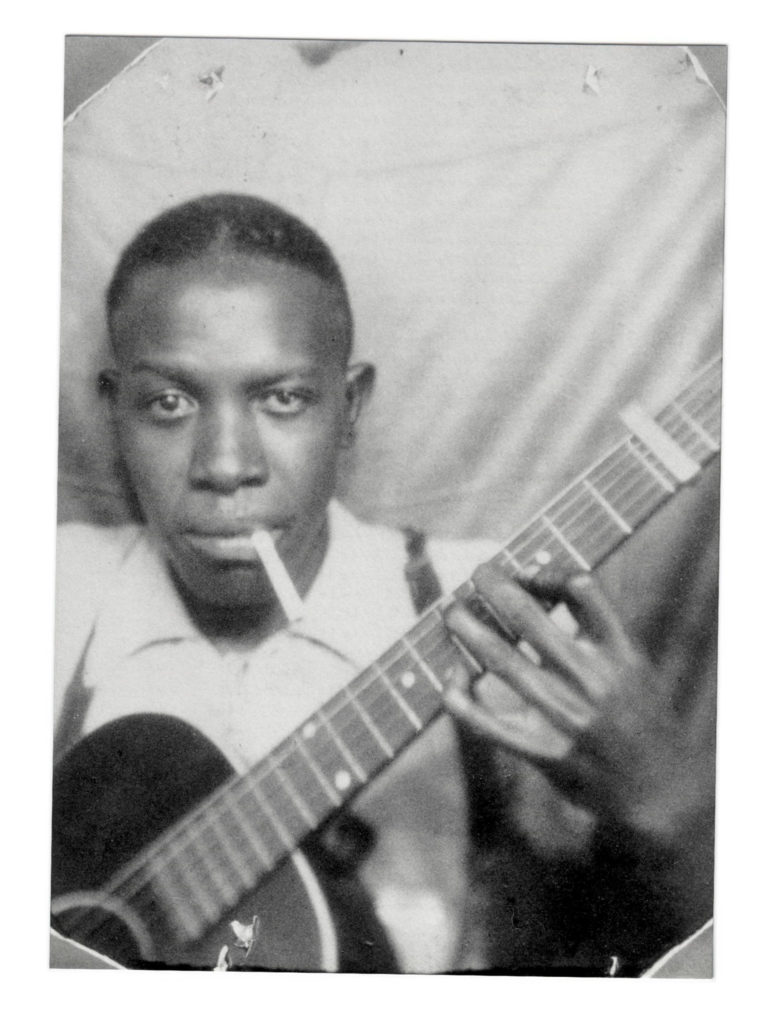In choosing a topic for last week’s (May 8) Music History Monday post, I had a difficult choice: to either mark the birthday of the short-lived American composer and pianist Louis Moreau Gottschalk (1829-1869) or the birthday of the even shorter-lived American blues songwriter, singer, and guitarist Robert Johnson (1911-1938). I chose to run with Gottschalk. Today, then, we are offering up a belated birthday greeting to Robert Johnson, who is among the most influential American musicians to have ever lived.

Was that last bit an overstatement, “among the most influential American musicians to have ever lived”? No; it is not. But we would note that Johnson’s musical influence was primarily felt by rock ‘n’ roll musicians, living and working a full generation after his death in 1938. As we will soon discuss, we know next to nothing about Johnson himself: his life (and his death). He was an itinerant musician who performed on a small musical circuit up-and-down the Mississippi Delta, playing on street corners, saloons, Saturday night dances, and what were called juke joints. (“Juke joints” were pop-up establishment featuring music, dancing, gambling, and drinking, operated primarily by Black Americans in the deep south). Johnson’s recording career spanned a total of seven months, from November 1936 to June 1937, during which he recorded 29 songs and 13 alternative takes (all 42 of which are contained on the prescribed recording). It was thanks to these recordings that Johnson became a legend, particularly among the rockers of the 1950s and 1960s.
For example.

Eric Clapton’s cover of Robert Johnson’s Cross Road Blues made him famous when he recorded it with his band Cream in 1966. Clapton (born 1945) recorded a number of Johnson’s blues, and in 2004 he released a tribute album titled Me and Mr. Johnson. According to Clapton:
“Robert Johnson to me is the most important blues musician who ever lived: the greatest folk-blues guitar player that ever lived, and the greatest singer [with] the most powerful cry you can hear in the human voice.”
In his Chronicles Volume One (Simon & Schuster, 2004) Bob Dylan (born 1941) wrote that:
“When Johnson started singing, he seemed like a guy who could have sprung from the head of Zeus in full armor. I immediately differentiated between him and anyone else I had ever heard. The songs weren’t customary blues songs. They were so utterly fluid. They jumped all over the place in range and subject matter, short punchy verses that resulted in some panoramic story-fires of mankind blasting off the surface of this spinning piece of plastic . . .Robert Johnson was one of the most inventive geniuses of all time. We still haven’t caught up with him.”
… continue reading, only on Patreon!
Become a Patron!








